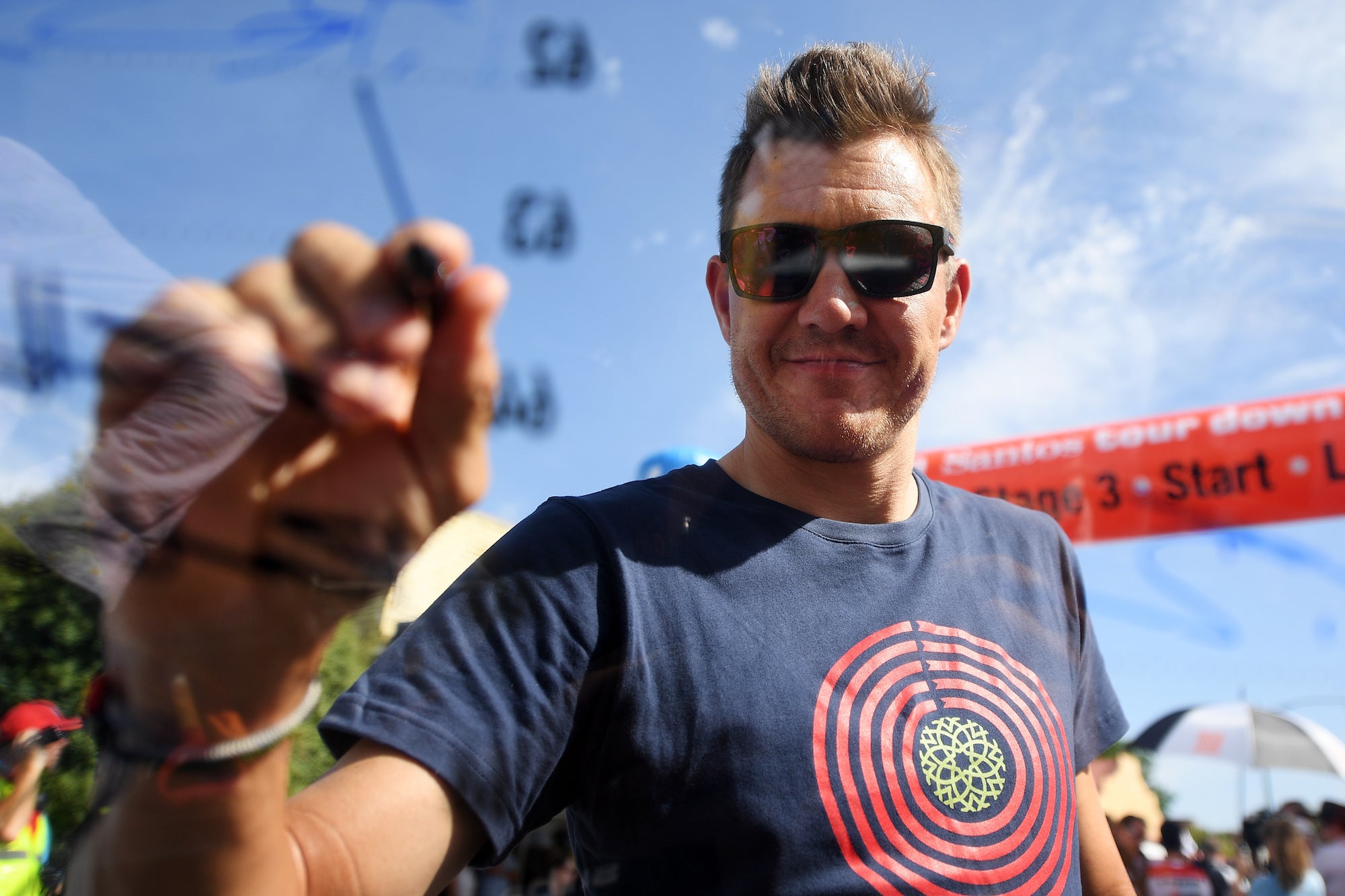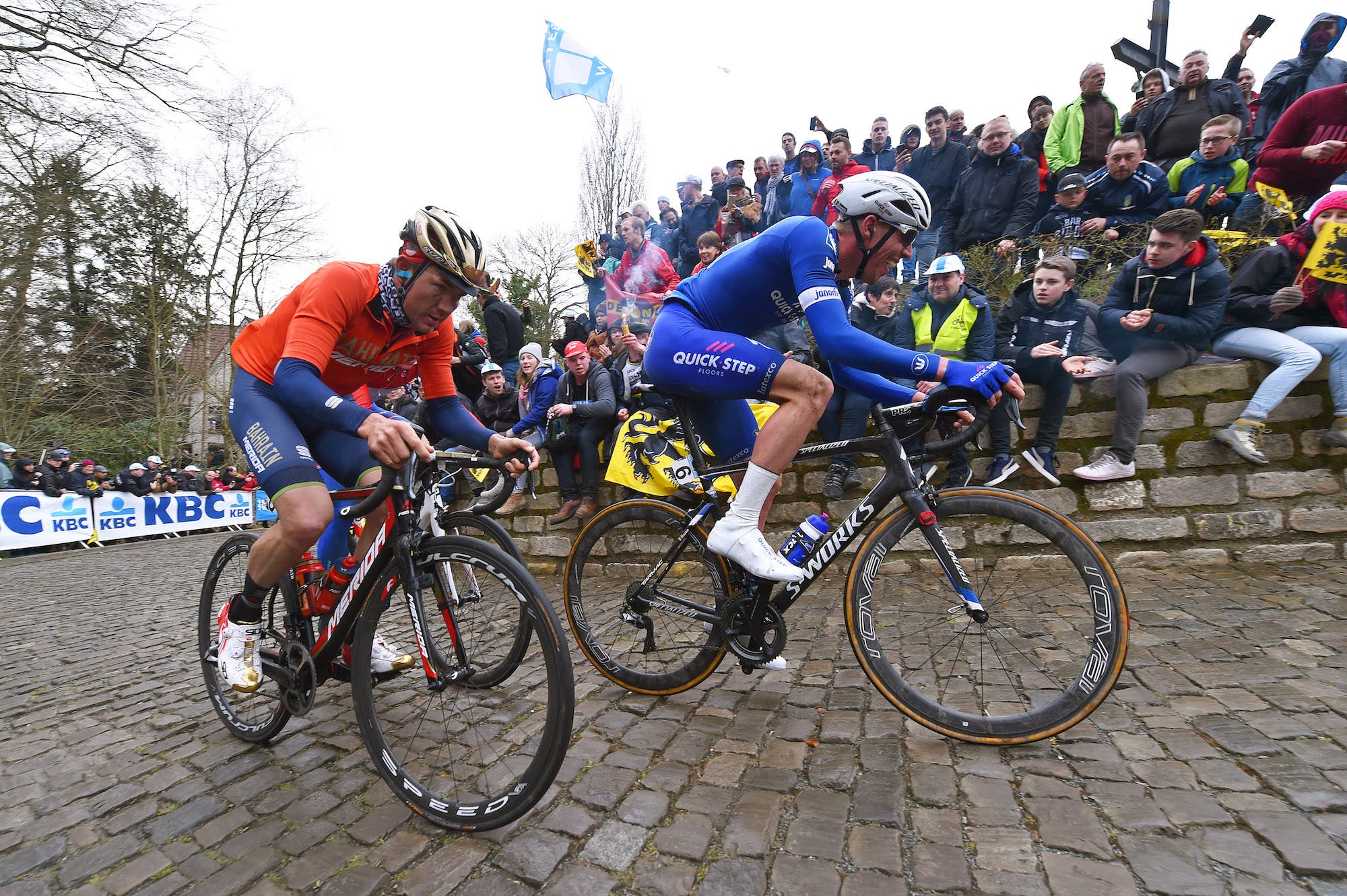Haussler: ‘Flanders is an elimination race’

Photo: Tim de Waele/Getty Images
GENT, Belgium (VN) — Is the Tour of Flanders road cycling’s version of the elimination race? You know, the race on the velodrome when the last rider across the line is cut?
Well, that’s how Australian veteran Heinrich Haussler (Bahrain-Merida) sizes up the final hour of racing at the Ronde van Vlaanderen.
“After Koppenberg, it’s 30 guys. After Taaienberg, it’s 25, then you’re back to the Kwaremont, and it’s 10 guys,” Haussler said. “It’s pretty much the same scenario every year. Flanders is almost like an elimination race.”
The Bahrain-Merida veteran knows a thing or two about Flanders, having grappled with the tactical puzzle and physical pain of the Ronde some 11 times during the arc of his career. Just as often as the Ronde takes away, it can give. Haussler has twice punched into the top-10, including second in 2009 when he led the bunch across the line a minute behind solo winner Stijn Devolder.
Haussler, now a grizzled veteran at 35, said there’s not too much mystery in a race as hard, long, and punishing as the Ronde. At nearly seven hours in length, there are only a handful of riders who can have realistic chances to win.
“If you haven’t got the power to be in the front, you’re not in the front,” he said. “The big difference for Flanders is the distance. That six-and-a-half, seven-hour race means you have to be careful.”
Anticipation is building for Sunday’s Flanders. It should be one of the most competitive edition in years. There isn’t a singular standout favorite who has been blowing everyone away. A dozen teams will line up Sunday in Antwerp believing they have chances to win.

Haussler will lead Bahrain-Merida with a team that brings a mix of veterans and relative newbies. Marcel Sieberg and Kristijan Koren also pack decades of collective experience on the bergs, while youngsters like Ivan García Cortina, 23, and Matej Mohoric, 24, are just learning the ropes.
Like most experienced Flanders riders, Haussler has learned that positioning and know-how count for a lot. To win Flanders takes a unique skillset, founded on pure power and strength to race for seven hours. Knowing the course and how to approach the decisive cobbled climbs is the second half of that equation.
“Positioning is everything at Flanders,” Haussler said. “I’m not saying if you’re in bad form you can win the race, but by knowing the course, positioning yourself perfectly, and knowing where to ride hard, you can go really deep in Flanders without spending massive energy. Knowing the course is a massive, massive advantage.”
Haussler is noticing how much that local road knowledge and experience counts as he leads Mohoric around the Flemish countryside for the first time. The uber-talented Slovenian is racing Flanders and Paris-Roubaix for the first time. Hot off fifth at Milano-Sanremo, the team believes Mohoric is the kind of all-rounder who can shine in the monuments. Part of Haussler’s job this spring has been towing Mohoric around the famous roads of Flanders and northern France.
“It’s like with [Mohoric] — Harelbeke was his first race, and he knows nothing,” Haussler said. “When the guys were attacking, he was asking, do I need to go now? Yeah, man, if you can go, f—king go!
“You have such a massive advantage when you know the course,” he said. “We’ve done a lot of recon, and we even did the last 100km in the car, just so he knows what will be coming up on Sunday. That knowledge is super important, and it will make his life so much easier.”
Haussler is not done yet with the classics. He’s had an up-and-down ride since his breakout year in 2009 when he was second in both Sanremo and Flanders, and sixth at Paris-Roubaix. Injuries and other setbacks have put up hurdles, but he’s kept pushing on.
Every year, he returns to the northern classics dreaming of victory. He’s been back in the frame a few times, with sixth in the 2013 Flanders and sixth at the 2016 Roubaix. On Sunday, he’ll follow the wheels as long as he can, and try to steer Mohoric and Cortina into the fray. A top-10 at Wednesday’s Dwars door Vlaanderen hinted that his form is arriving just in time.
“I am getting better. I haven’t been great. No excuses — since UAE, I’ve been on-and-off sick, but I still have two weeks to try to find my form,” Haussler said. “I’ve been here working with Sonny [Colbrelli] and Matej. I am older now, and I’m riding as a road captain.”
Hope springs eternal in cycling, and Haussler has been around long enough to know that in northern classics, stubborn persistence can pay off. What he’s really relishing is Paris-Roubaix on April 14. He’s watched journeymen like Mat Hayman and Johan Van Summeren win Roubaix, and he believes that the cycling gods might shine on him one day so long as he stays in the game.
“Roubaix is a completely differently race,” Haussler said. “I love that race. I will try to do something there.”